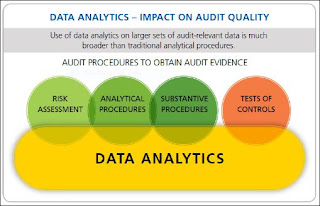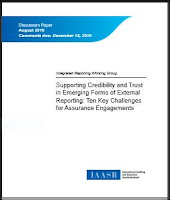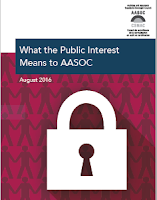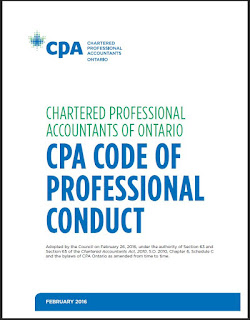 |
| Pierre Brunet, FCA |
He noted that, “We are highly regarded as
knowledgeable financial experts. And our standards – in disclosure and
assurance, education, discipline, practice inspection, and professional conduct
are recognized around the world. But it’s not only our standards that have won us
the public’s trust. It’s the values we stand for. Honesty, integrity,
objectivity, reliability. And in the future, these values will be even more
important as the reliability of financial data becomes even more critical in
our society.”
“Each of us in a position of trust, regardless of
age or occupation, needs an ethical gyroscope. …The truth is, however, that
rules and regulations have never been able to address the root of the problem …
a problem that results from the obsession of certain individuals with accumulating
power and wealth. This problem is at once timeless, universal, and all too
human. And no matter how much we strengthen the system as a bulwark against
abuse and greed, there will always be people who want to take advantage. This
is why the efforts of individual CAs are perhaps even more important than
actions we take as a profession. CAs such as yourselves, who work responsibly,
every day, and live up to the values of our profession.”
“Most importantly, be proud to be a CA. Be proud not only of where we’ve been, but most of all of where we’re going. So put that CA on your business card. Because it stands not just for what we know. It stands for who we are. So, go forward with pride, and with the strength and sureness that only values will provide.”
“Most importantly, be proud to be a CA. Be proud not only of where we’ve been, but most of all of where we’re going. So put that CA on your business card. Because it stands not just for what we know. It stands for who we are. So, go forward with pride, and with the strength and sureness that only values will provide.”





















